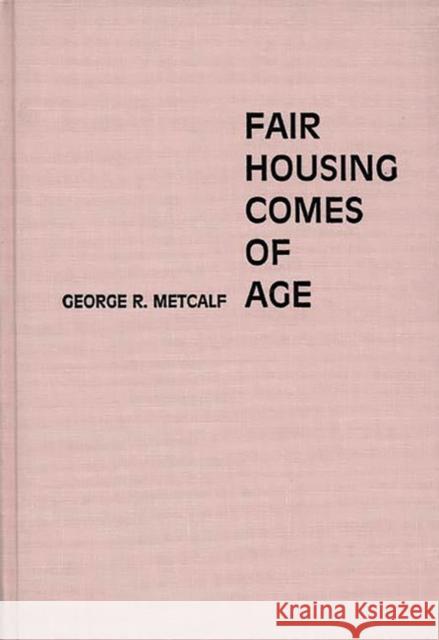Fair Housing Comes of Age » książka
Fair Housing Comes of Age
ISBN-13: 9780313247576 / Angielski / Twarda / 1988 / 254 str.
Over the past three decades the civil rights movement has succeeded in increasing equality of opportunity for minority groups in American society. However, as Metcalf suggests in this volume, discrimination in the area of housing remains very real and very critical. For, despite the efforts of legislation like the Civil Rights Act of 1964 that has led to equality in voting, education, and employment for members of minority groups, housing discrimination in various forms remains rampant, with close to two million incidents of discrimination in housing occurring annually. In this thought-provoking treatment of housing policies and practices within the U.S., Metcalf traces the development of governmental intervention in the housing arena from the passage of the Thirteenth Amendment in 1865 through the Housing and Community Development act of 1974. . . . Metcalf proposes that his text be used as a catalyst to induce the public to act, and in turn, to influence the courts, administrators, and legislatures at all governmental levels. A detailed and well-written volume. "Choice"
Despite legislation designed to eliminate discrimination in housing, the ghettoization of minorities, especially Blacks, has become more severe in the past two decades. In this compelling work, George Metcalf examines the reasons why Title VIII has had so little effect, and he documents the experience of the individuals and agencies who have carried the main burden in efforts to achieve fair housing. He offers excerpts and data drawn from extensive interviews, as well as careful analyses of twelve landmark decisions involving violations such as racial steering, misinformation, harassment, redlining, and exclusionary land practices.











